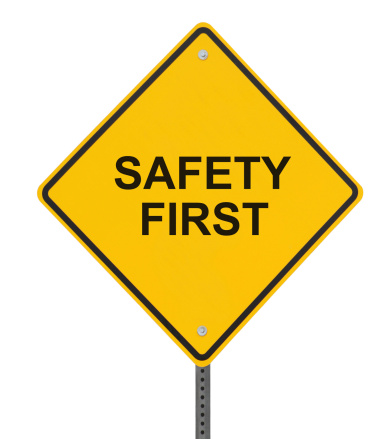 My father is a master electrician. That doesn’t really mean much on the surface, I certainly didn’t inherit any knowledge or skills, but one thing that was handed down was a healthy respect for electrical safety. Hearing my dad’s stories about trained professionals getting thrown across warehouses because somebody forgot to turn off a breaker put the fear of God into me. Even with this inherent fear, I still managed to give myself some shocks when installing a ceiling fan in my bedroom.
My father is a master electrician. That doesn’t really mean much on the surface, I certainly didn’t inherit any knowledge or skills, but one thing that was handed down was a healthy respect for electrical safety. Hearing my dad’s stories about trained professionals getting thrown across warehouses because somebody forgot to turn off a breaker put the fear of God into me. Even with this inherent fear, I still managed to give myself some shocks when installing a ceiling fan in my bedroom.
From 2007-2011, there were 47,820 fires in homes that were caused by either electrical failure or malfunction. These fires caused 1,518 injuries, 455 deaths and $1.5 billion in damage (National Fire Protection Association). Electrical safety is one of those things that every homeowner should know and respect.
Below are eight tips that can help you avoid being a statistic.
- Trust experience. If you are unsure of what exactly needs to happen, make sure that there is somebody nearby with experience. Having somebody with experience around can help avoid mistakes that can cause serious harm in the future. A poorly wired outlet can lead to a fire and put your home in danger.
- Cut off the power. One of the basics of electrical safety is cutting off the power at the circuit-breaker box before working on anything electrical. This really is the only way to ensure that there is no power going to whatever it is you are working on. Trust me; the last thing you want is to hit a grounded wire when you think there is no power.
- Make sure that any room that has running water is equipped with ground fault circuit interrupters. GFCI’s shut off the electrical current from a circuit whenever it detects that the circuit has become a shock hazard. GFCI’s have become mandatory under the National Electrical Code for newer homes, so if you live in an older home make sure that the bathroom, kitchen and laundry room are all equipped with them.
- Avoid using extension cords for long periods of time. Extension cords are great for temporary jobs, but if you are using an extension cord as a permanent source of power you might want to think about calling an electrician and having an outlet installed.
- If you have small children or are planning on having any kids soon, make sure that you have tamper-resistant receptacles. Children are incredibly curious in nature and part of that curiosity is seeing what happens when they stick something into an electrical outlet. TR receptacles are equipped with spring-loaded shutters that help protect your children from being electrocuted. Both springs must be pushed in for there to be any contact with electricity. The average cost of installing these is about 50 cents, which is a small price for electrical safety.
- Warm outlets are a bad sign. If an outlet feels warm or constantly flips the circuit-breaker, call an experienced electrician. Warm outlets can be signs of a bad connection and can lead to electrical fires or shock hazards.
- Avoid overloading a single outlet. Outlets are made to put out a certain amount of energy. Multiple high-wattage appliances plugged into the same outlet can be very unsafe. If you can’t rearrange your appliances to different outlets, consider installing a new outlet to relieve some of the stress on the original outlet.
- Have arc-fault circuit-interrupters installed throughout the house. AFCI’s protect against accidental unintentional electrical discharges that can occur at loose connections or where any wires or cords have been damaged.
Electrical safety is one of those things that every homeowner should follow. Unless you're a confident, experienced DIYer, any electrical repairs should be left to an expert. Next time you need help with anything electrical, contact Experts In Your Home. Our Chico area electricians are experts in your home.
Download these tips and more below for a handy guide to staying safe in your home:








